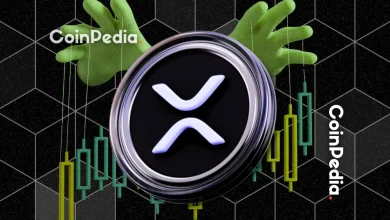
Japan's stringent regulations and high taxes on crypto assets are hindering its growth in the global crypto market.
Despite regulatory challenges, Japanese firms continue to invest in crypto.
Advocacy groups are pushing for more favorable conditions for crypto assets in Japan, but progress remains slow.
The recent launch of crypto exchange-traded funds (ETFs) has brought new energy to the global cryptocurrency market after a long period of stagnation. However, Japan remains hesitant to approve such products, with the Ministry of Finance and the Financial Services Agency (FSA) wary of the risks and volatility involved. While countries like the United States and Hong Kong have moved forward with spot Bitcoin and Ether ETFs, Japan’s strict regulations may impact its financial competitiveness in the future.
Moreover, Japan’s hesitation to adopt crypto is slowing down innovation while the world jumps into this trillion-dollar market. Is it wise to stay away?
High Crypto Taxes: A Barrier to Adoption
Japan’s complex tax rules add another layer of difficulty. Profits from crypto investments are classified as miscellaneous income, facing tax rates of up to 55%, compared to the roughly 20% capital gains tax on traditional ETFs. This disparity is fueling calls for change. For example, Yuichiro Tamaki, leader of the Democratic Party for the People, has proposed reducing the tax rate on crypto to 20% and eliminating taxes on crypto-to-crypto exchanges.
Investment Continues Despite Challenges
Despite regulatory and tax concerns, Japanese firms are still investing in crypto. Notably, investment company Metaplanet recently bought 108.78 BTC for around $6.92 million, bringing its total Bitcoin holdings to about 640 BTC. Often called “Asia’s MicroStrategy,” the firm is leading the charge in accumulating Bitcoin, showing a bullish outlook despite a restrictive regulatory environment.
- Also Read :
- Crypto Regulations in Japan 2025
- ,
It’s Time for Reform!
Crypto advocacy groups in Japan are pushing for more favorable conditions, but progress remains slow. As entrepreneur Mario Nawfal put it, Japan is “still in HODL mode,” reflecting the country’s cautious approach. The ongoing debate over tax reform and ETF approvals marks a crucial moment for Japan’s digital asset strategy, as it tries to balance innovation with regulatory caution.
Japan’s stringent regulations could deter new investors and drive existing crypto enthusiasts to look for opportunities abroad. If this trend continues, it could weaken the yen and limit Japan’s potential.
Is Japan missing out on a massive opportunity by being so cautious about crypto? Let us know your thoughts.








